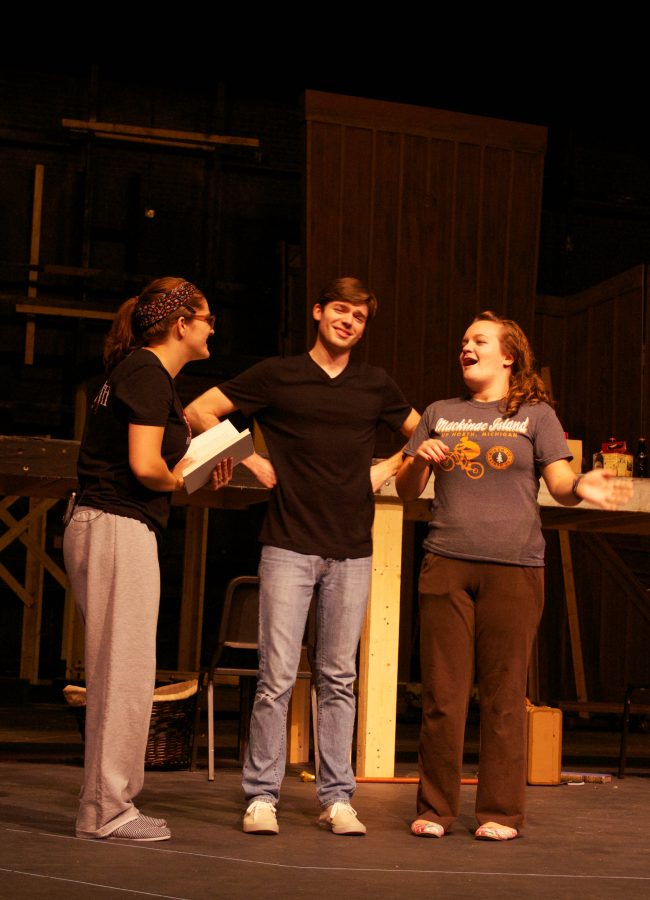Performed last year as a fulfillment of Janie Mayer-Board’s senior directing requirement, “Tabula Rasa,” a student-run play without a set script, will return to the stage at 7:30 p.m. Friday and Saturday, Oct. 3 and 4.
Although it was previously performed in Stratton Hall, this time the play will be performed in Rodeheaver Auditorium to give the students the opportunity to work on a bigger stage.
“This is really the beginning of the opportunity to maybe see more student-run plays on the big stage,” said Ron Pyle, head of the theatre arts department. “It’s an exciting first step.”
The 60-minute play’s
storyline was developed through derived word brainstorming, as well as rehearsing with the eight student actors and the director, Board herself. Recently married to Adam Board, Janie graduated with a theatre arts degree last spring, and she is now a graduate assistant this academic year.
“The students all got together to brainstorm and try out some scenes with different guidelines,” Pyle said. “They kept track of what they did and, after a period of months, a story emerged.”
The storyline revolves around various generations of a family, including 48 different characters in scenes from the 1940s to the modern day.
“Each actor has different roles and costume changes with props,” Pyle said. “They keep switching scenes, but they are all held together by a thread.”
Each run-through of “Tabula Rasa” differs slightly because Board did not use a written script.
“There is no script, but each actor has all of the details in their head,” said David Schwingle, a theatre arts assistant professor. “It’s really a different play because it appeals to the audience’s imagination.”
Schwingle himself worked closely with Board and the cast during the development stages of “Tabula Rasa” last year.
The title “Tabula Rasa,” which means “blank slate,” was chosen as a representative name for multiple things. The cast and director started with a blank slate for their script and built the play from nothing. The title is also a reference to Jean Jacque Rousseau’s philosophy of tabula rasa, originally theorized by John Locke. The tabula rasa theory states that man’s mind is blank from birth and is not naturally affected in a good or bad manner from its beginning.
“We’re actually ironically disagreeing with Rousseau because we’re trying to say that the choices you make affect those around you,” Schwingle said.
Even for those who saw the play last year, Pyle encourages everyone to see it again because no two runs of the play are exactly the same.
“The most appealing thing about the play is the actors’ ability to switch from character to character, yet be fully engaged in that story’s emotional moments and jump right into it,” Pyle said. “It demonstrates the creativity of the actors, and they do a great job.”
Tickets are available to purchase for $3 from Programs & Productions at the box office or online.

























































